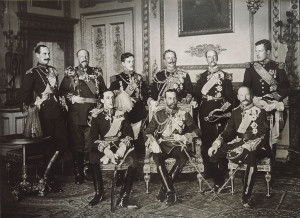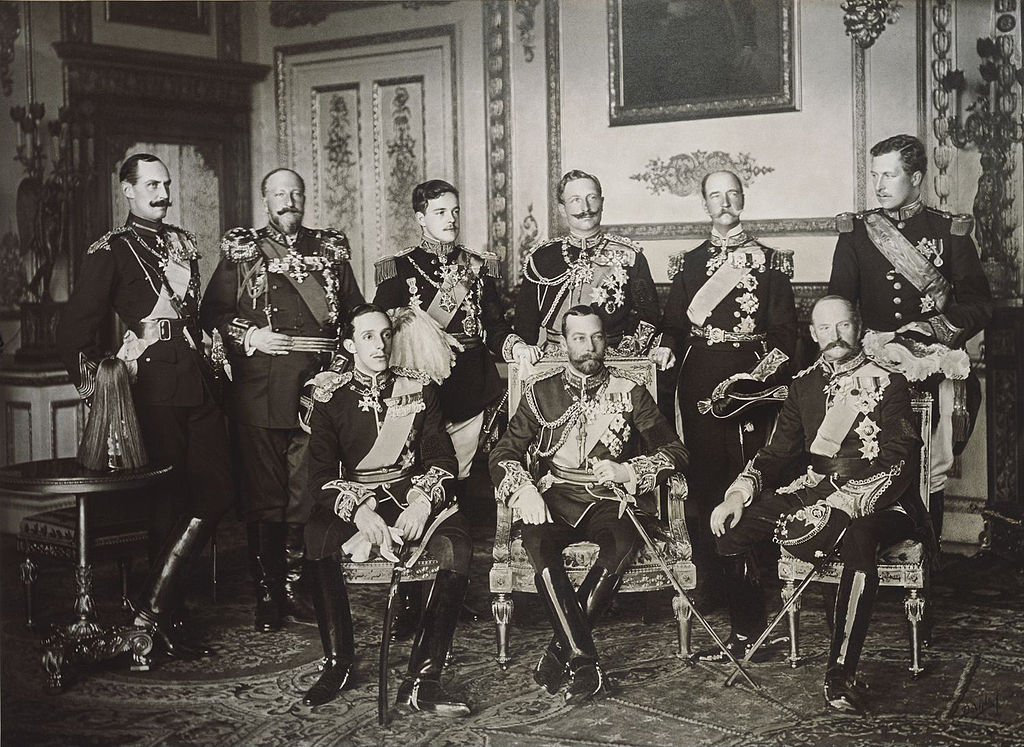Who are these guys?!
Let everyone be subject to the governing authorities, for there is no authority except that which God has established. The authorities that exist have been established by God.Romans 13:1

That said, the fact remains that we live in a world where it is clear to see that evil men have come to power and wield that power destructively.
How do we respond? How should we respond?
How do we continue to love and follow a God that would allow — nay, establish — governing authorities such as these?
A greater perspective
Know that you are not the first.
Without drawing political lines, it’s easy to see patterns of destructive governing well past the last couple decades; we see this poor leadership style for centuries and even millenniums. Some of the first kings described in scripture paint pictures of hard-hearted pharaohs deep in the B.C. This is not a difficult point to argue.
If God establishes authorities, even those that abuse their powers, how do we continue to follow and trust Him? Can we even learn to honor those that God has placed in authority, even when we suffer under their rule?
How would you have responded as a Hebrew slave of Egypt, forced to maintain an already impossible brick-making quota while no longer being supplied with straw for the project? (Exodus 5)
Moses, the man chosen by God to lead the Jewish nation out of captivity, responded to God with frustration over his God-given responsibility and accusation that “you have not rescued your people at all.” (Exodus 5:24) And to be honest, sadly, I’d probably be right there next to him, wagging my finger at God. Isn’t that in our nature? To judge things we don’t understand?
A radical response to evil
This discussion resonates around “the problem of evil”; how can a good God reign while evil things happen? Luckily, the Bible isn’t silent on the subject. Take the story of Job. This guy was all but tortured. Losing all of his kids, his entire property, including servants… all on the same day, he responds in worship:
Naked I came from my mother’s womb, and naked I will depart. The Lord gave and the Lord has taken away; may the name of the Lord be praised.” Job 1:21
Woah! That’s radical. May I argue that we don’t criticize God until we’ve endured the same and responded likewise?
Brace yourself like a man
But that’s not all. On another day, he loses his health and his wife tells him to give up his integrity, curse God and die. His friends gather to sympathize with him, but that ends in a mess. When Job is defeated and responds to God in frustration and accusation, Yahweh responds as only He can:
“Who is this that darkens my counsel with words without knowledge? Brace yourself like a man; I will question you, and you shall answer me. Job 38:2-3“
Oh! And the discourse that follows is incredible. Job is put in his place like none before — and we are wise to accept the same disciplining response.
Authority intimately tied to identity
Still, how do we come to grips with this clearly incongruous information: that God is good, but allows evil men to rule?
I think the answer lies in our understanding of God’s sovereignty. Is God truly God or is He not?
See, what’s funny is that when Job questions God’s motives, God doesn’t validate the question with a direct answer, but simply and powerfully points Job’s attention to the identity of God.
Could it be that the answer to the problem of good and evil lies in our pursuit to know the identity of God? In turning our focus on God’s character, especially in the life of Christ, can we find resolution to this age-old question?
Does a clear view of Christ — the alpha and the omega, the author and finisher, the true authority over life and death — enable us to show honor to our government? Even that president or that governing official?
Our response
The rest of Romans 13 instructs us not to rebel against the authority God instituted and thus bring judgement on ourselves. Paul admonishes submission to authority — even to show respect, honor and pay taxes (gasp!) — not for fear of punishment, but out of a clean conscience.
When I encounter evil men in authority, or the consequences of poor decisions made by governing officials, here is my obligation and opportunity to glorify God:
- Get a clear view of Christ. Understanding God’s identity reveals our identity.
- Chose to show honor. Moses and Job aren’t given an exception; nor will you.
- Be available. Whether in prayer or service, God may want to use you to answer the problem.
All that is necessary for evil to triumph is for good men to do nothing. Disputed. Tolstoy, War and Peace
It’s good practice to never point a finger before asking if God intends to use us as the solution. As His hands and feet, we may be the surrendered vessel God has been waiting for.
- International Justice Mission. Using law to rescue modern-day slaves.
- Save The Storks. A radical new approach to combating abortion.
- Revolution5 Leadership Institute.* Training up young Christian leaders to influence every sphere of society.


 We live in a world where rules abound. Speed limits, seat belt regulations, minimum drinking age, no swimming, no skateboarding, no cell phones, minimum height required… sometimes our rules get wacky:
We live in a world where rules abound. Speed limits, seat belt regulations, minimum drinking age, no swimming, no skateboarding, no cell phones, minimum height required… sometimes our rules get wacky: